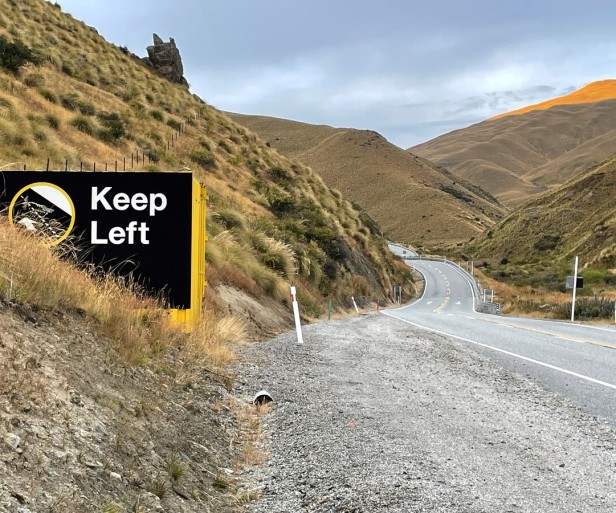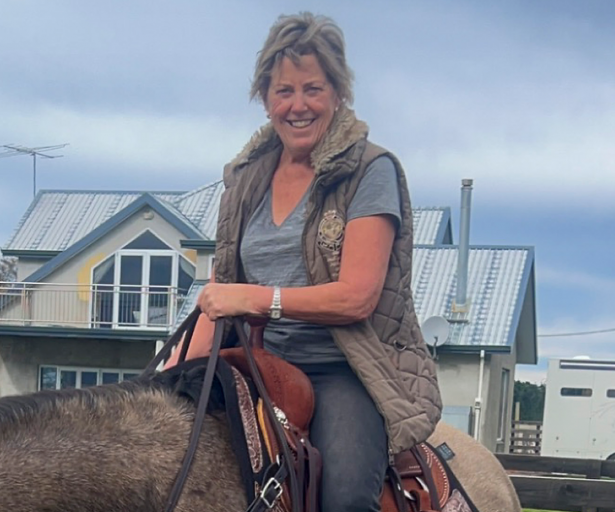Police warn sextortion on the rise – be aware

Police say sextortion has become a major problem nationally and internationally and they’re working with local partner agencies to raise awareness about it and the risks posed by this offending.
Otago Lakes Organised Crime Lead Detective Senior Sergeant Regan Boucher says international research shows sextortion cases have more than doubled in recent years.
Police are working together with agencies like Central Lakes Family Services, Wakatipu High School, Oranga Tamariki, Netsafe, the FBI and metropolitan police to warn families and get the word out.
Sextortion is a form of online blackmail and involves a threat to distribute a victim’s explicit photos or videos, Boucher says.
“Offenders will most often demand money, but they may also demand more intimate material or sexual acts or attempt to control the victim’s behaviour.”
Authorities worldwide are seeing a significant increase in overseas offenders targeting teenagers with threats to share their content in exchange for money, gift cards or online gaming credits, he says. NZ Police are saying an increase in reporting of these sorts of cases. “If the victim is under the age of 18, this is online child sexual abuse,” Boucher says.
While it may be the fastest-growing form of child sexual exploitation, he says it’s preventable so it’s crucial that it’s reported.
“Perpetrators can easily misrepresent themselves online to pass off as another student or as an adult seeking to befriend the victim,” he says. In some cases, they may even run a recorded video of a child and make it appear as though it’s a live video feed.
“Anyone who asks a child or teenager to engage in any sexually explicit activity should be reported immediately to a parent, guardian, or law enforcement. The only guarantee to make a perpetrator stop is for them to be held to account criminally.”
He says sextortion offenders create fake social media profiles and direct message their victims via the likes of Instagram, SnapChat and Facebook. They then suggest that the chat continues on another platform, usually one with video calls where images and videos can be sent.
The chat then turns sexual, and victims are convinced to participate in sexualised video calls or send images or videos of themselves. The content is recorded during video calls without the victim’s knowledge, Boucher says.
Once the fake profile has the content, they will then ask for money and threaten to share the content.
Boucher says they may ask for cryptocurrency, online bank transfer, or online game or gift cards. “Once paid, the demands will not stop, and the offender will continue to ask for money and threaten to share the content.”
A high-risk time window for children and teenagers is 4pm – midnight, when they’re likely to be online after school.
Offenders will often try to make their victims feel like they’ll get in trouble for what has happened to keep victimising them.
“It is vital to remember there is absolutely nothing to feel ashamed or embarrassed about if you have been a victim of this type of offending,” he says. “You’ve done nothing wrong, and you will not get in trouble if you report this type of offending to Police.
“The most important thing is your safety – Police are here to help you and they are on your side.”
He’s urging parents to prioritise conversations with their children ensuring they know to tell someone immediately if they encounter any red flags so that action can be taken to protect them from further offending.
Red Flags Online:
🚩 Unsolicited friend or follow requests or random adds from people you don’t know
🚩 Sudden sexualised questions or conversation
🚩 Instantly receiving sexual images from a ‘fake’ profile asking for some in return
🚩 Getting a direct message on one app, then being asked to continue chatting on a different one
🚩 Signs that English may be a second language
🚩 The ‘male or female’ profile might say that their webcam or microphone are not working for video calls/chats
🚩 The ‘male or female’ profile says that they promise to delete your content
Protection Tips:
Don’t send any more images or videos.
Don’t comply with the offender’s demands for payment.
Block the fake profile.
Tell a parent, guardian or friend, and report it to Police as soon as possible.
Where possible, collect as much evidence as you can taking screenshots of the chat, URLs and any other information you can gather from the fake profile, such as the profile name and profile picture.
Police also recommend setting app and social networking site privacy settings to the highest level possible.
“Always remember that anything done online could be shared, seen or made available to others. Any video chat session can be recorded without your knowledge.”
If you are in immediate danger, please contact Police via 111.
In a non-emergency situation, you can provide a report to Police by calling 105 or filing an online report: https://www.police.govt.nz/use-105#online-report-options
Parents urged – have those conversations
Wakatipu High School principal Oded Nathan says they’re continually working with students to teach them about their digital footprint and online safety, starting at Year 9.
“But sometimes students get it wrong and in cases where it’s very wrong, we will work with the Police and/or Netsafe.”
He says the school has not dealt with any sextortion cases, as this sort of activity would likely occur outside of school hours and be dealt with by the Police. However, Police were on hand to discuss the Harmful Digital Communications Act (HDCA) at the second in the school’s series of parenting evenings focusing on consent and care last week.
“Sometimes breaches of the HDCA just require a conversation and sometimes it requires more than a conversation and matters could be taken to the Police,” Nathan says.
“People share compromising photos of themselves more often than we’d think, and while this isn't necessarily illegal for people over 16, there have been times when these photos have been reshared without consent, which is a breach of the HDCA.”









